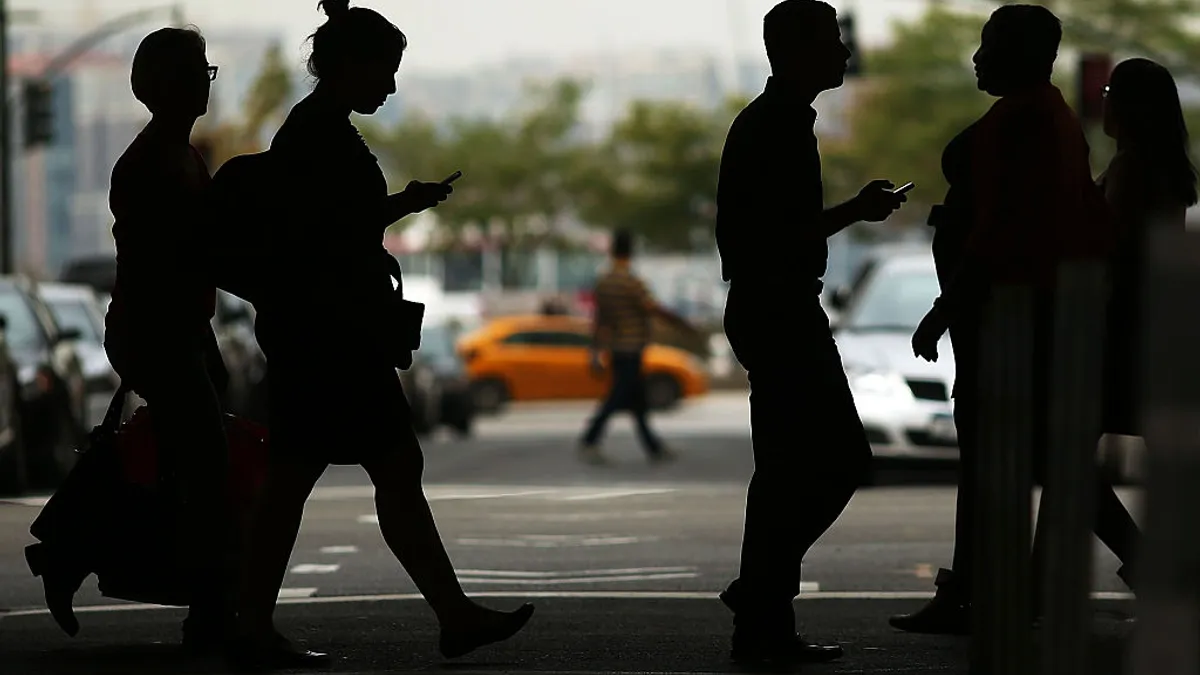Dive Brief:
- Over half of the 126 mayors who responded to this year's Menino Survey of Mayors indicated that of the pandemic's numerous long-term implications, they're most worried about residents' mental health. The survey, led by Boston University and supported by Citi and the Rockefeller Foundation, collected responses from 126 U.S. mayors from 39 states in large and mid-size cities with more than 75,000 residents during the summer of 2021.
- Other top concerns were learning loss among young people, and financial insecurity of low-income residents. About a quarter of mayors said they are most concerned about rising crime and violence as a long-term implication of the pandemic. While "strikingly," the report stated, only 7% are most concerned about the shift to remote work and only 2% are most concerned about residents relocating to other communities. Maxwell Palmer, report co-author and associate professor of political science at Boston University, noted that crime may rank as a lower area of concern — despite rising crime rates in some cities — because the survey included includes a large sample of cities and crime may be less of an issue in some of those localities.
- Over three-quarters (78%) of the mayors also said they believe the American Rescue Plan Act (ARPA) funds will help them make transformative investments in housing, homelessness, infrastructure and equity. And 18% said they plan to use ARPA funds to fill gaps from normal expenditures.
Dive Insight:
Last year’s survey highlighted the pessimism and concern among mayors about potentially dramatic budget cuts due to the COVID-19 pandemic. This year, mayors are focused on their spending plans for the $65 billion in ARPA funds allocated to cities. The report cites that mayors see "ample opportunities to remake their cities using federal rescue funding."
Respondents, who account for leadership in about a quarter of all U.S. cities exceeding 75,000 people, were asked which one or two categories ARPA money would allow them to take transformative actions. Some 21% plan to prioritize the use of funds to help address homelessness. While 18% said they would invest in transportation infrastructure, 15% plan to invest in housing and social services, 13% plan to invest in broadband and 9% intend to invest in water.
Many of these areas are also connected to resident mental health, according to Palmer. "Mental health is so tied to public health and to evictions and to schools and so many other critical things that have been severely impacted by the pandemic as well," he said.
Numerous mayors also cited data collection as a critical tool to evaluate policies, especially racial and ethnicity data. Eighty-two percent of mayors cited the federal government’s role as at least moderately important in driving the standards for racial and ethnicity data collection. "As one western mayor put it, 'we would only collect [racial data] if mandated,'" the report writes.
The collection of racial and ethnic data changes drastically across policy areas. More than three-quarters of mayors said they collect such data on arrests, but less than one-quarter said they collect that data for climate resilience planning. The disparity in racial data collection for climate planning is also striking, according to the report, given the disproportionately negative impacts of climate change on communities of color.
Collecting good data is challenging and it's costly, Palmer noted. He said it seems that many cities are not investing or prioritizing in that area. Mayors are also limited by "counterproductive" federal government policies around data collection, in addition to issues with staff capacity, the report states.
The findings also follow an executive order signed by President Joe Biden in January, which created an Equitable Data Working Group tasked with identifying inadequacies in federal data collection programs related to gender, race, disabilities, income and other demographics.












